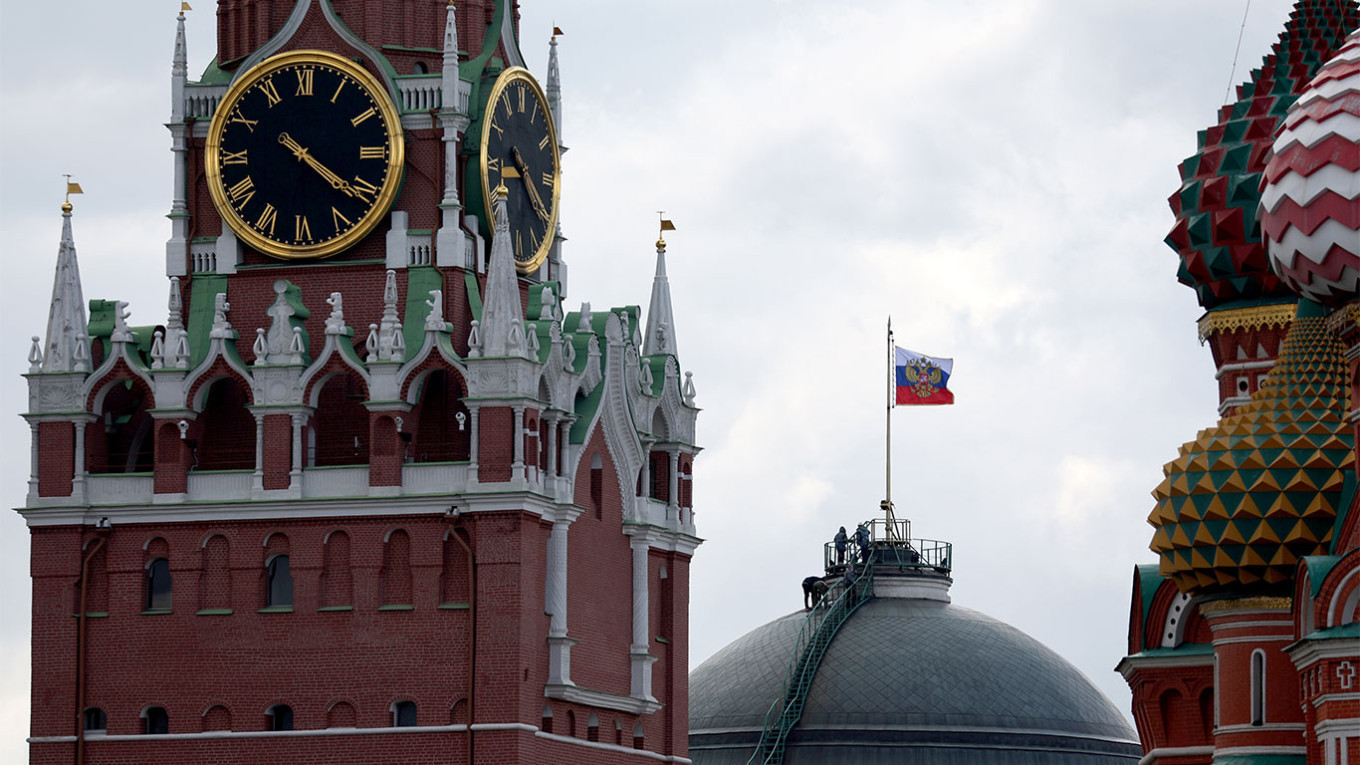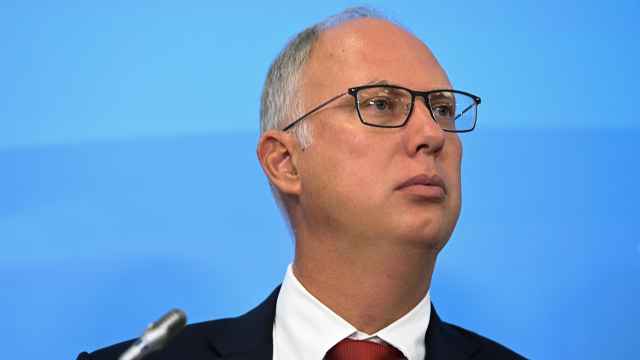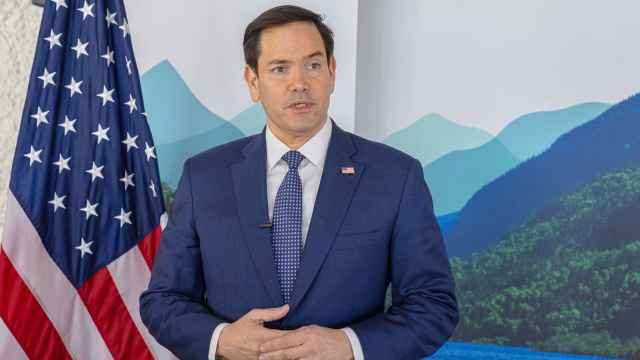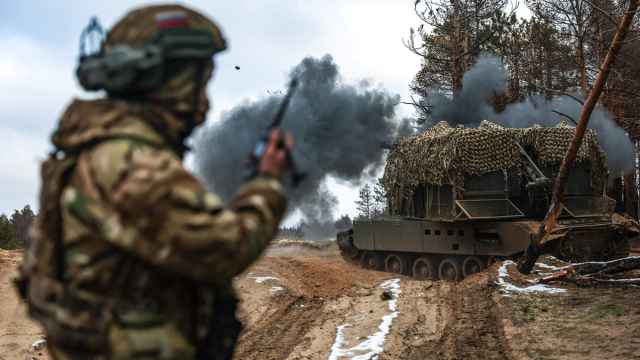The Kremlin said Monday that it has received no further details from the White House about its latest peace proposal following talks between Ukrainian and U.S. officials in Geneva, but added it would wait to see how discussions evolve before offering a response.
“We haven’t yet received any kind of information,” Kremlin spokesman Dmitry Peskov told reporters. “We’ve been closely following the multitude of media reports in recent days, including those from Geneva, but nothing has officially been sent to us.”
The United States and Ukraine issued a joint statement following their meeting in Switzerland on Sunday, saying officials had “drafted an updated and refined peace framework” based on a 28-point plan that leaked last week and was later confirmed by the White House.
According to the statement, Ukrainian and U.S. officials agreed to continue “intensive work” on joint proposals in the coming days. Kyiv and its allies had dismissed the original plan as capitulation since it acceded to several of the Kremlin’s longstanding demands.
“We read a statement that, following the discussions in Geneva, some amendments had been made to the text which we had seen earlier. We’ll wait. It seems that the dialogue is continuing,” Peskov said on Monday.
Unidentified sources told the Financial Times on Monday that the meeting in Switzerland resulted in the U.S. peace plan being reduced to 19 points from its original 28.
The Washington Post later reported that points related to U.S.-Russian engagement not involving Ukraine had been among those cut from the first draft. Kyiv also reportedly pushed for its NATO aspirations to be decided based on NATO’s rules rather than the outright ban on membership contained in the original draft.
European leaders, blindsided by Washington’s latest unilateral push for peace in Ukraine, hastily drew up their own 28-point counterproposal that was released Sunday. They then met for emergency Ukraine talks on the sidelines of a summit in Angola on Monday.
“While work remains to be done, there is now a solid basis for moving forward,” European Commission President Ursula von der Leyen said after the meeting.
Peskov told reporters that no meetings between Russian and American officials were planned this week, but emphasized that President Vladimir Putin remained open to talks with Washington.
He declined to comment on the contents of the U.S. or European proposals, citing the complexity of ongoing negotiations.
“This is too important and complex an issue to be guided solely by media reports. It’s necessary to rely on information obtained through official channels,” Peskov said.
Kremlin foreign policy adviser Yury Ushakov, meanwhile, said that the U.S. plan would “require further reworking,” but that “many provisions” within it appeared acceptable to Moscow.
“The European plan, at first glance … is completely unconstructive and does not work for us,” he added.
Putin had said Friday that U.S. proposals for peace in Ukraine could serve as a basis for a future agreement to end the war, which is now nearing its fourth anniversary, but warned the Russian military would seize more Ukrainian territory if Kyiv rejected the plan.
Talks on the U.S. peace framework are expected to continue in the coming days, while a Thanksgiving deadline for an agreement appears to have been dropped as U.S. President Donald Trump eased some of his earlier pressure on Ukraine to sign the deal as soon as this week.
Writing on his Truth Social platform on Monday, Trump wrote: “Is it really possible that big progress is being made in Peace Talks between Russia and Ukraine???”
“Don’t believe it until you see it, but something good may just be happening,” he added.
A Message from The Moscow Times:
Dear readers,
We are facing unprecedented challenges. Russia's Prosecutor General's Office has designated The Moscow Times as an "undesirable" organization, criminalizing our work and putting our staff at risk of prosecution. This follows our earlier unjust labeling as a "foreign agent."
These actions are direct attempts to silence independent journalism in Russia. The authorities claim our work "discredits the decisions of the Russian leadership." We see things differently: we strive to provide accurate, unbiased reporting on Russia.
We, the journalists of The Moscow Times, refuse to be silenced. But to continue our work, we need your help.
Your support, no matter how small, makes a world of difference. If you can, please support us monthly starting from just $2. It's quick to set up, and every contribution makes a significant impact.
By supporting The Moscow Times, you're defending open, independent journalism in the face of repression. Thank you for standing with us.
Remind me later.






